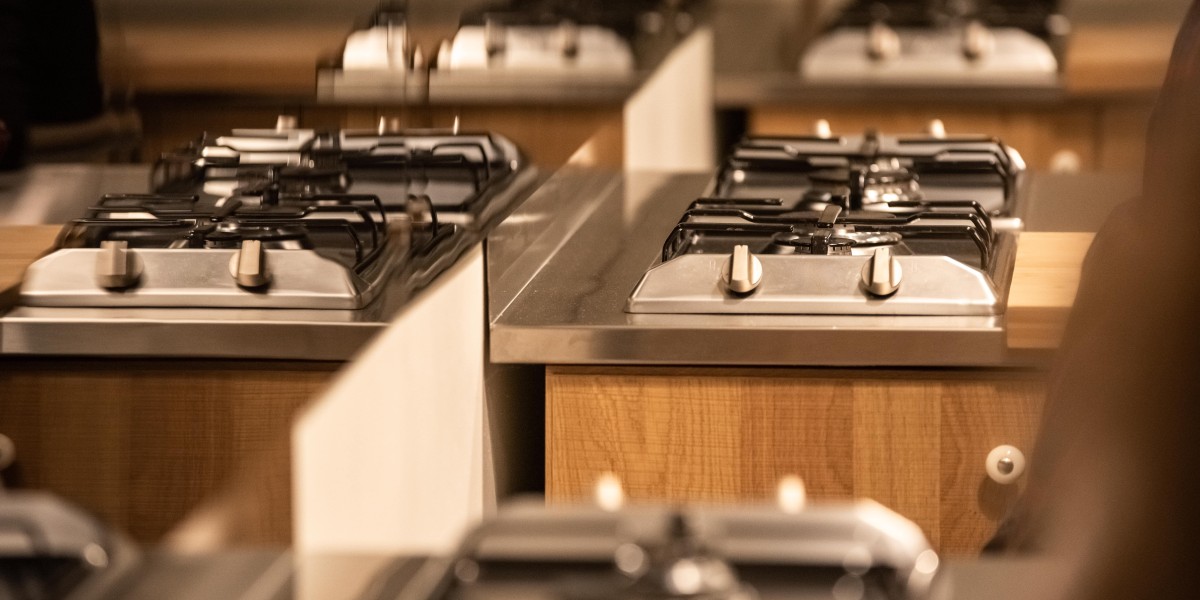Understanding Kitchen Ovens and Hobs: A Comprehensive Guide
The kitchen is often referred to as the heart of the home, and for excellent reason. It is where households come together, meals are prepared, and memories are produced. Central to this culinary sanctuary are 2 important home appliances: the kitchen oven and the hob. Comprehending their features, types, and functionalities is vital for efficient cooking and can considerably improve a home chef's experience. This article will explore the world of kitchen ovens and hobs, examining their numerous types, benefits, and pointers for making informed choices.

Tabulation
- Intro to Kitchen Ovens
- Kinds of Ovens
- Conventional Ovens
- Convection Ovens
- Microwave Ovens
- Steam Ovens
- Comprehending Hobs
- Kinds of Hobs
- Gas Hobs
- Electric Hobs
- Induction Hobs
- Advantages of Using Ovens and Hobs
- Choosing the Right Oven and Hob for Your Kitchen
- Upkeep Tips for Ovens and Hobs
- Frequently asked questions
- Conclusion
1. Intro to Kitchen Ovens
Ovens are important appliances in modern-day kitchen areas. They supply a regulated environment for baking, roasting, and broiling food. With different styles and functionalities, selecting the best oven can dramatically impact cooking times, food texture, and flavor.
2. Types of Ovens
Conventional Ovens
Conventional ovens are the most typical type found in homes. They utilize either electric or gas power to warm the interior and typically feature a single cooking area.
Benefits:
- Versatile for baking, roasting, and broiling.
- Generally budget friendly.
Convection Ovens
Convection ovens resemble standard ovens but come equipped with a fan that circulates hot air throughout the cooking chamber. This results in even cooking and browning.
Advantages:
- Reduced cooking times due to improved airflow.
- Enhanced browning and crisping of foods.
Microwave Ovens
Microwave utilize electro-magnetic radiation to heat food rapidly, making them convenient for defrosting and reheating leftovers.
Benefits:
- Very quickly cooking times.
- Energy effective.
Steam Ovens
Steam ovens utilize steam to cook, maintaining the moisture and nutrients in food. They are particularly popular amongst health-conscious cooks.

Benefits:
- Healthier cooking alternative.
- Maintains minerals and vitamins in food.
3. Comprehending Hobs
Hobs, likewise understood as cooktops, are the flat surfaces on which pots and pans are placed to cook food. They can be integrated into kitchen countertops and are available in various styles, fuel types, and designs.
4. Types of Hobs
Gas Hobs
Gas hobs use gas burners as their heat source, providing instant heat and exact temperature level control.
Advantages:
- Excellent control over cooking heat.
- Usually cheaper to run than electric ones.
Electric Hobs
Electric hobs heat utilizing electric coils or glass surface areas. They might take longer to heat up than gas, however they provide a smooth cooking surface and are simpler to clean up.
Advantages:
- Even heat circulation.
- Safe, as there's no open flame.
Induction Hobs
Induction hobs utilize electro-magnetic energy to straight heat up pots and pans. They require compatible cookware and deal immediate responsiveness.
Advantages:
- Highly energy-efficient.
- Faster cooking times and precise temperature control.
5. Benefits of Using Ovens and Hobs
Both ovens and hobs included their own distinct set of advantages that can boost any cooking experience. Here are a few essential advantages:
- Diverse Cooking Options: Both devices allow for a range of cooking methods consisting of boiling, frying, roasting, baking, and steaming.
- Time Efficiency: Modern ovens and hobs frequently feature fast cooking settings, which conserve time in the kitchen.
- Accuracy Cooking: With sophisticated functions, users can attain better results in temperature control and cooking times.
6. Choosing the Right Oven and Hob for Your Kitchen
When picking the ideal oven and hob, various aspects should be thought about:
- Size: Ensure that the device fits easily in your kitchen space.
- Cooking Style: Consider what types of food you regularly prepare.
- Fuel Type: Whether gas or electric, consider availability and efficiency in your location.
- Budget: Determine your budget and discover home appliances that meet your needs within that variety.
Checklist for Choosing Your Oven and Hob:
- Assess kitchen space.
- Recognize your cooking preferences.
- Determine source of power accessibility.
- Compare functions and specs.
- Set a budget plan variety.
7. Upkeep Tips for Ovens and Hobs
Routine maintenance is important for keeping ovens and hobs in ideal condition. Here are some upkeep tips:
- Clean Regularly: Wipe down surfaces after each use and deep clean regularly.
- Examine Seals: For ovens, check door seals to guarantee they are airtight.
- Examine Burners: For gas hobs, keep burners devoid of food debris to maintain effective heating.
- Replace Filters: If your oven has a filter, replace it as suggested by the manufacturer.
8. Frequently asked questions
1. What is the difference in between a conventional oven and a convection oven?Conventional ovens
prepare food through convected heat, while stove distribute hot air, leading to faster and more even cooking. 2. Do induction hobs require unique cookware?Yes,
induction hobs need ferrous cookware that is capable of being allured to work effectively. 3. Are steam ovens worth the investment?For health-conscious people or those who often prepare vegetables and delicate foods, steam ovens can be worth the financial investment
due to their capability to retain nutrients. 4. Can I integrate an oven and hob into one unit?Yes, many makers offer combined systems understood as range cookers, which integrate both an oven
and hob into a single device. 9. Conclusion Kitchen ovens and hobs are important components of any cooking space, each offering unique functions and functionalities suited for various cooking styles.
By understanding the
kinds of ovens and hobs readily available, their benefits, and how to maintain them, home chefs can cultivate a more efficient and enjoyable cooking experience. Whether one is a skilled cook or a beginner, making informed decisions about these important kitchen home appliances is crucial.








